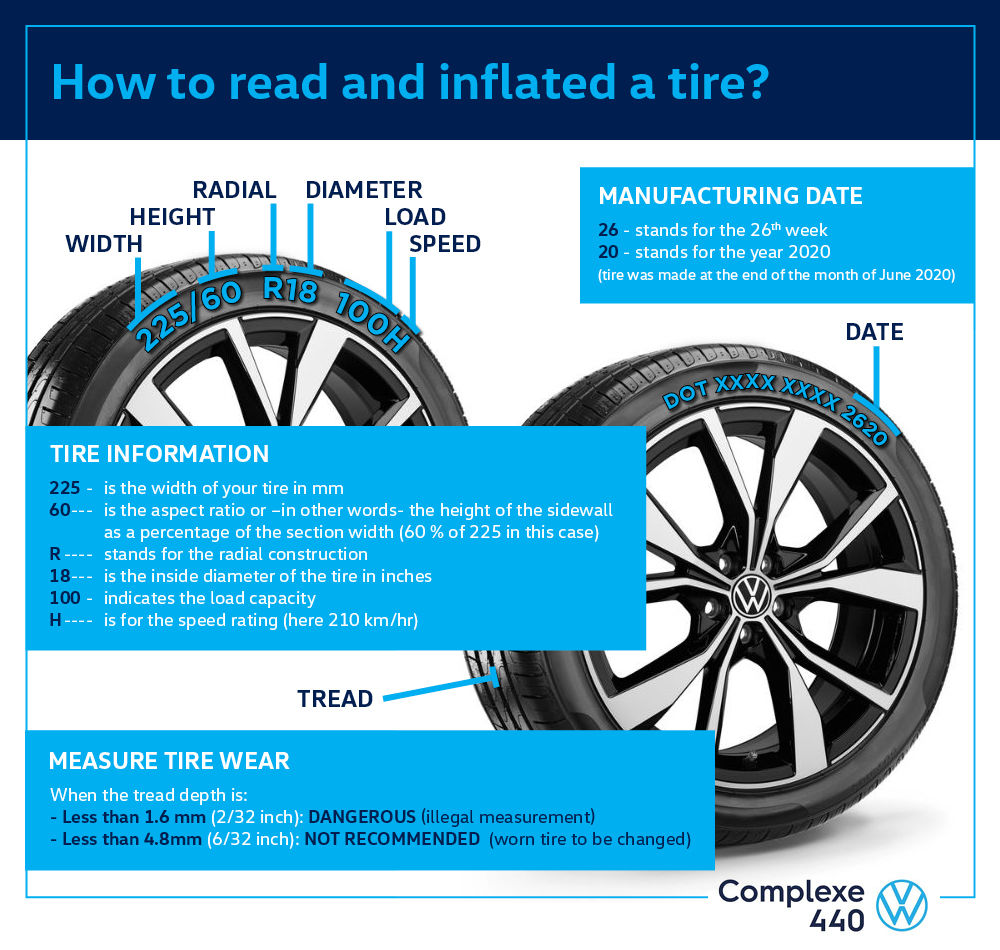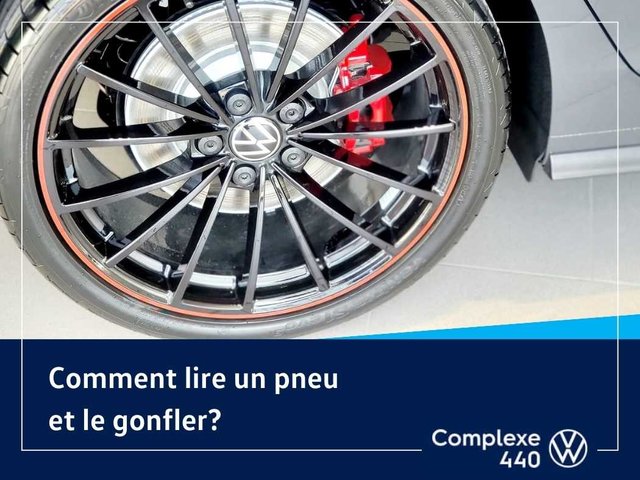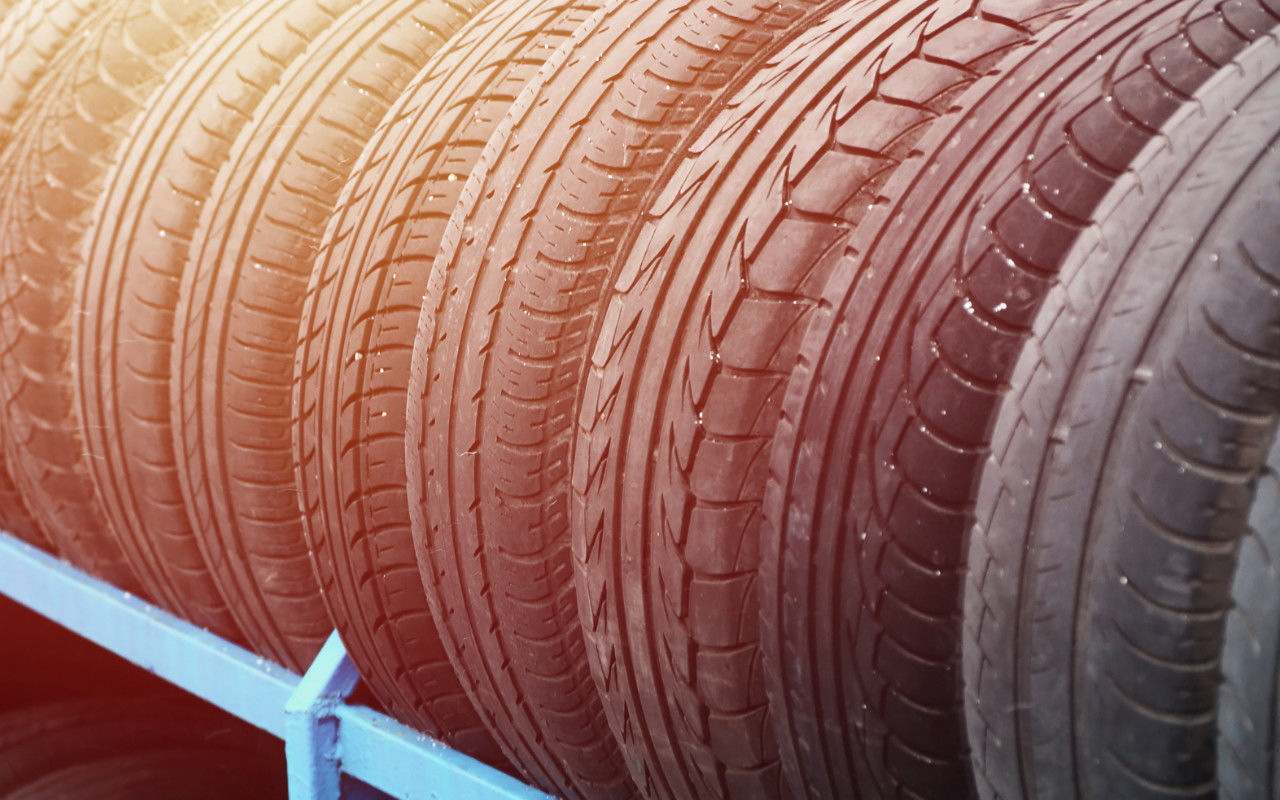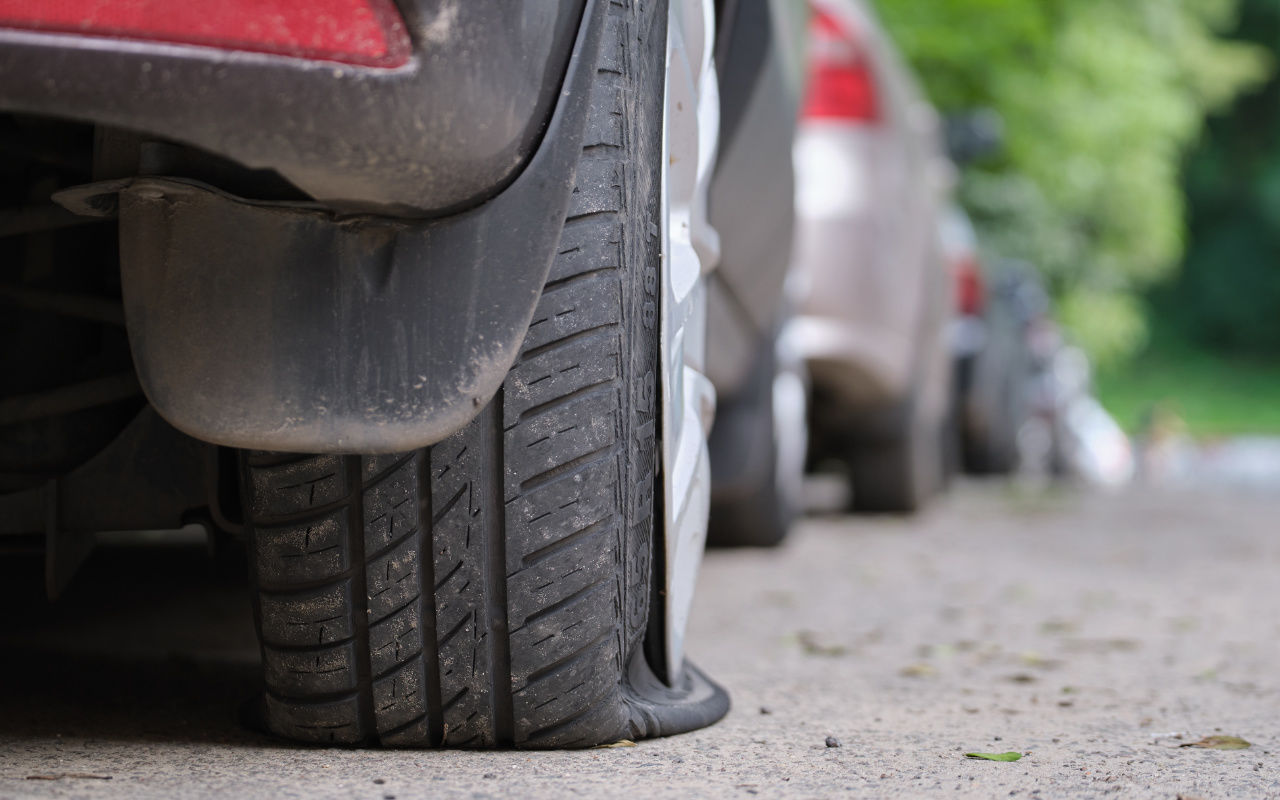There is a lot of information that needs to be demystified in order to help you understand how to read a tire. On a tires’ sidewall, there are numbers and letters in a sequence that gives us very precious information we might not understand.
With Volkswagen Canada and your Volkswagen dealership, Complexe VW 440 in Laval, close to Terrebonne, Montreal-North and the North Shore of Montreal, we give you all the information you need so that you can understand how to read, inflate and do proper maintenance on your tires.
How to read a tire?
Although the question might seem benign, it remains a useful one, given that many of us have no clue as to what the letters and numbers on our tires mean.
However, when the time comes to change a tire, it is important to understand this information in order to transfer it to our local garage or tire vendor. Moreover, the information on our tires prove to be useful as well if a neighbor or friends wants to sell his or her winter tires, for example, as this will allow us to find out if they are suited to our vehicle’s wheels –or not.
Although a tire does have information that is important for us to know, a visual inspection of our tires will also allow us to figure out if they are still good, along with their level of wear.
So, the best way to read a tire is to first understand what the numbers and letters on the tire’s sidewall represent.
As for a gentle reminder, when should you change your winter tires? In the province of Quebec, your vehicle must be equipped with winter tires from the 1st of December until March 15th.

How can you tell when a tire was manufactured?
To the question: how can you tell a tire’s production year? You must first find the four small digits that follow the acronym DOT on the tire’s sidewall, and the factory code where the tire was made.
For example: if you find the numbers 2620 on your tire, this translates into weeks and year for when the tire was made. In this case, the number 26 stands for the 26th week and the number 20 stands for the year 2020. It is thus safe to assume that the tire was made at the end of the month of June 2020.
This bit of information is important, given that your vendor could suggest that it is time to change your tires if they are too old. In the industry, it is generally recommended not to go over seven years.
What do numbers on a tire mean?
Firstly, it is important to mention that no matter if your vehicle has all-wheel drive vs 4- wheel drive, it still requires a set of quality tires in order to ensure your sedan, SUV or truck’s performance levels.
Moreover, let’s say you read the following sequence on your tire’s sidewall: 225/60 R18 100H. These numbers and letters stand for:
- 225 is the width of your tire in mm
- 60 is the aspect ratio or –in other words- the height of the sidewall as a percentage of the section width (60 % of 225 in this case)
- R stands for the radial construction
- 18 is the inside diameter of the tire in inches
- 100 indicates the load capacity
- H is for the speed rating (here 210 km/hr)
To make your life easier, when the time comes to change your tires, your tire vendor will ask you to provide them with your tire brand and the sequence 225/60 R18. With this information, they will be able to recommend tire models suited to your car.
Finally, further down on the sidewall you will likely see the DOT acronym which means that the tire has been approved by the Department Of Transportation in the United States, to which the Canadian industry refers to. DOT then follows with a code that refers to the factory where the tire was made. There will also be more information regarding the tire’s manufacturing process, like Sidewall, Polyester 2, Nylon 1, etc.
How can you tell if your tires are still good?
Your tires’ lifespan also depends on several factors, from your driving habits to your tires’ quality.
The best way to know if your tires are still good is to proceed to a visual inspection each year. This could help you avoid several problems. It is important to remember that each tire should go through this inspection process, given that they can wear unevenly.
As previously mentioned, as a general rule, a tire’s lifespan should not exceed seven years.
How can you measure a tire’s wear?
To the question: how to measure a tire’s wear? You have two different options:
The first one is that you should examine your tire tread’s depth, thanks to a tire measuring tool. The SAAQ (Société d’Assurance Automobile du Québec) mentions that a tire with a tread depth inferior to 4.8 mm (6/32 of an inch) means that it is time to change your tires. To be legal, you tire’s tread must be equal to or higher than 1.6 mm (2/32 of an inch).
Another method that is often used is the moose drawing on a 25 cent coin. All you have to do is take the coin and inserted in the tread until it touches the bottom, while making sure that the moose’s nose is facing downwards. If the moose’s snout disappears, your tires are still good. If it doesn’t, the time has come to change your tires.
How to inflate your tires?
First and foremost, before even thinking of inflating your tires, it is important to verify what tire pressure you need. To find this information, you must refer to the sticker inside the car door (generally on the driver’s side) or in your owner’s manual, which should always be in your glove box.
How to inflate your car tires: remove the valve caps, place the tip of the air pump on the valve and ensure an airtight fit. Gently and slowly add air to your tires until you reach the pressure indicated in the owner’s manual or inside your car door. With the manometer, you can check if you have reached the desired pressure and make adjustments.
Complexe VW 440, your tire specialist in Laval
Your Volkswagen dealership, Complexe VW 440 in Laval, close to Terrebonne, Montreal-North and the North Shore of Montreal, not only invites you to take a look at our outstanding vehicles with an impressive Volkswagen SUV towing capacity, we also offer after-sales service and vehicle maintenance.
Come and discover all of the advantages we offer at our tire center, or take advantage of our current Volkswagen special offers in Laval, and our Volkswagen financing options. A seasoned team of passionate experts and mechanics are here to answer all of your questions.










